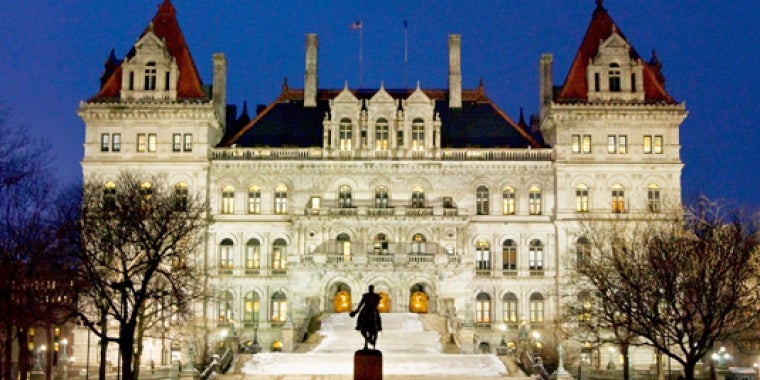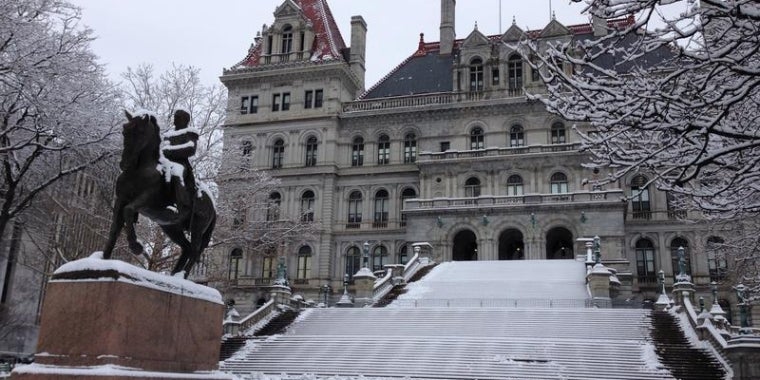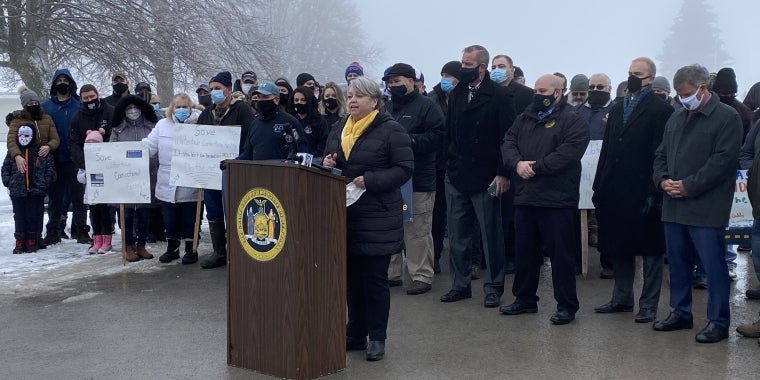
Ritchie Backs Bill to Close Child Porn Legal Loophole
Patty Ritchie
May 15, 2012
Speedy Response to Court Ruling That Said Viewing Not a Crime
State Senator Patty Ritchie today announced that the Senate has passed a bill she cosponsored to close a gaping legal loophole in New York State that makes it legal to view online child porn.
Senator Ritchie said she disagreed strongly with the ruling—but agreed with Judge Victoria A. Graffeo, one of eight Associate Judges on the Court, that the ruling could lead to an explosion of new child pornography—and more exploited and abused children—as purveyors seek to meet growing demand for the perverse materials."
The bill, which passed 56-4, is a response to a ruling by the Court of Appeals, the state’s highest court, that said viewing pornographic images of children as young as 8 years old over the Internet was allowed, as long as the defendant didn’t download, print, save, share, or otherwise “control” the images.
“Simply put, child pornography is an abomination,” said Senator Ritchie. “Whether people view it, download it, or save it on a computer—it shouldn’t matter—anyone with any sort of involvement should be punished.”
“As a mother and a grandmother, it pains me to think of children being exploited in situations such as this. We need to take every step necessary to make sure people viewing child pornography face the consequences of their actions.”
Senate bill 7407 would make the viewing of child pornography—which has been illegal to possess since 1996—a Class E felony, punishable by up to four years in prison.
The bill is sponsored in the Assembly by Codes Committee Chair Joseph Lentol of Brooklyn.
The Court of Appeals ruled in the case of People vs. Kent that a 65-year-old man who was found to have 30,000 cached images on his computer of children in sexual situations could not be charged because he only viewed the material online, and didn’t download or “control” it.
Judge Graffeo said that there was no difference in her view between viewing and downloading the images, because both actions victimized children, who the law was supposed to protect.
“That child is victimized each time the image is accessed and viewed simply because he or she never consented—and could not consent—to the dissemination of that image,” she said.
“The market for child pornography enlarges with the knowing viewing of these images …because the more frequent the images of children engaged in sexual conduct are accessed, the more the creators produce to satisfy the growing demand, which results in more children being coerced and groomed for the sex trade.”
Share this Article or Press Release
Newsroom
Go to NewsroomStatement from Senator Patty Ritchie
January 19, 2021


Statement from Senator Patty Ritchie
January 11, 2021

